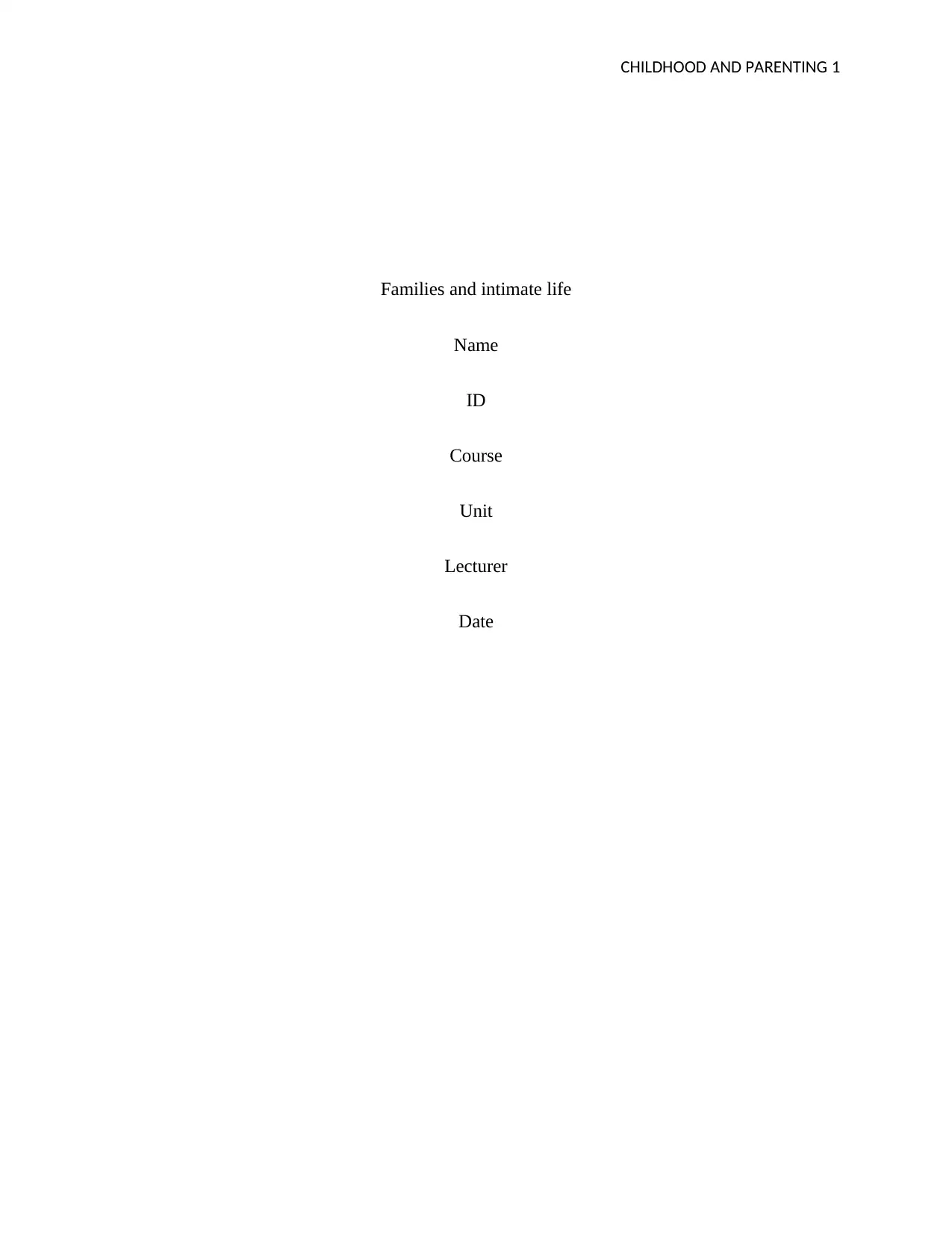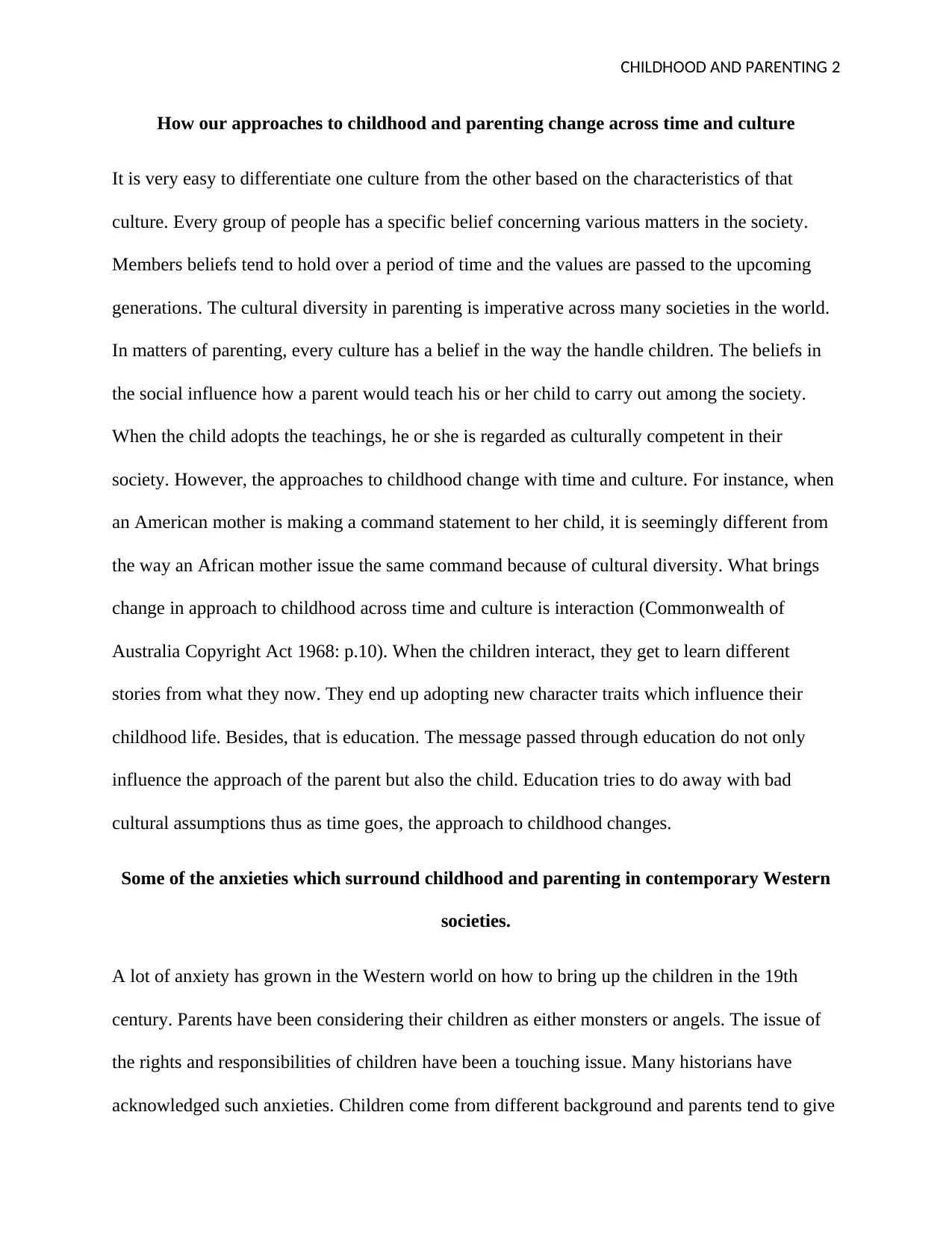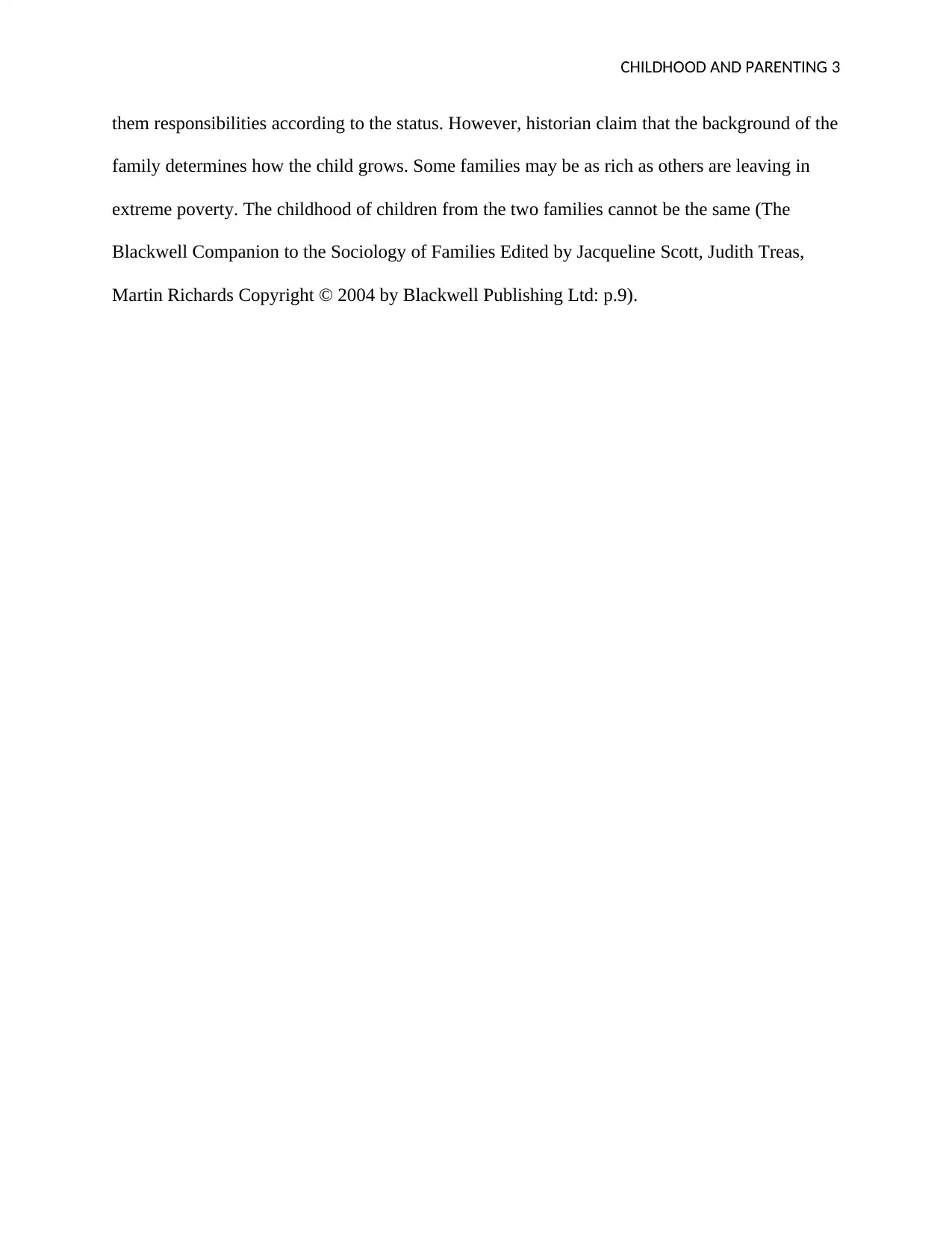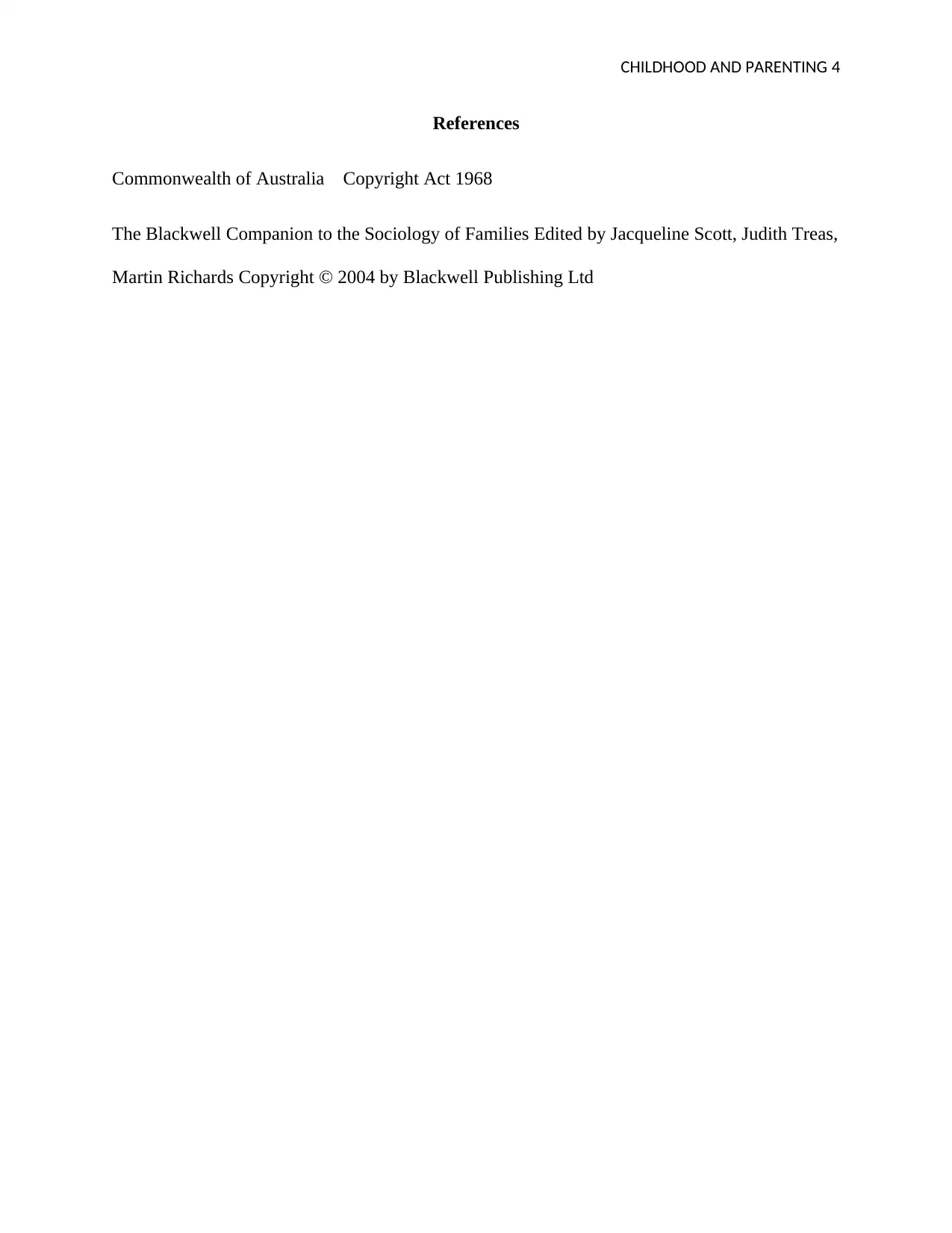Childhood and Parenting: Cultural and Temporal Shifts in Approach
VerifiedAdded on 2023/06/04
|4
|501
|343
Essay
AI Summary
This essay delves into the dynamic nature of childhood and parenting, highlighting how approaches evolve across different cultures and historical periods. It emphasizes the significance of cultural diversity in parenting, illustrating how societal beliefs and interactions shape parental practices and child development. The essay contrasts parenting styles, such as the command styles between American and African mothers, to emphasize the impact of cultural influences. It also examines the role of education and interaction in driving changes in parenting methods and considers the anxieties surrounding childhood and parenting in contemporary Western societies, including the varying expectations and responsibilities placed on children based on family backgrounds and societal norms. The essay references and utilizes information from sources such as the Commonwealth of Australia Copyright Act 1968 and "The Blackwell Companion to the Sociology of Families."
1 out of 4






![[object Object]](/_next/static/media/star-bottom.7253800d.svg)